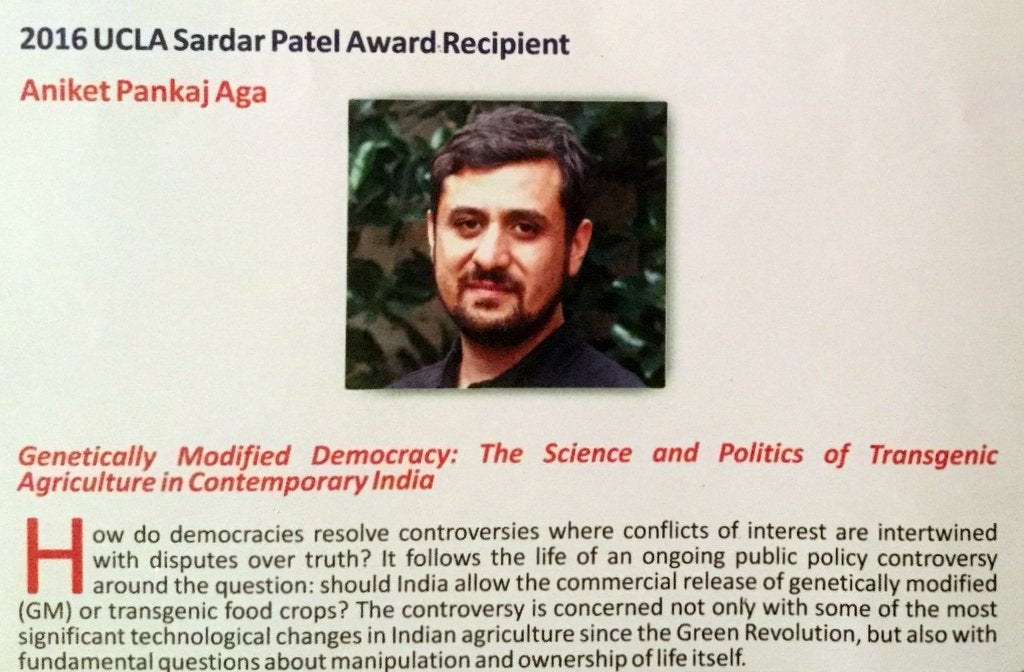 Congratulations to SFSI affiliate and SNRE faculty member Aniket Aga for receiving the 2016 Sardar Patel award! The award was instituted in 2000. It honors the best doctoral dissertation on any aspect of modern India – social sciences, humanities, education and fine arts – in any U.S. University or academic institution awarding the Ph.D. See below for an abstract of Dr. Aga’s dissertation.
Congratulations to SFSI affiliate and SNRE faculty member Aniket Aga for receiving the 2016 Sardar Patel award! The award was instituted in 2000. It honors the best doctoral dissertation on any aspect of modern India – social sciences, humanities, education and fine arts – in any U.S. University or academic institution awarding the Ph.D. See below for an abstract of Dr. Aga’s dissertation.
Genetically Modified Democracy: The Science and Politics of Transgenic Agriculture in Contemporary India

“My dissertation sheds light on a central puzzle of democratic politics: how do democracies resolve controversies where conflicts of interest are intertwined with disputes over truth? It follows the life of an ongoing public policy controversy around the question: should India allow the commercial release of genetically modified (GM) or transgenic food crops? The controversy is concerned with some of the most significant technological changes in Indian agriculture since the Green Revolution, as well as with fundamental questions about manipulation and ownership of life itself. The dissertation is based on archival research, and on 24 months of ethnographic fieldwork with farmers, anti-GM activists, agricultural scientists, private seed companies, and government bureaucrats. The GM debate – the issues around which people have mobilized, and the ways in which they have mobilized – is usually framed as a conflict between farmers and transnational agribusinesses (e.g. Monsanto). However, specificities of the Indian case suggest that the GM debate is profoundly dependent on the historical conjunctures in which biotechnology was born as a new field of knowledge, and the political structures through which it consolidated itself, in India as elsewhere. Ultimately, I show how the GM debates are inflected by regional histories of science and politics, and how technical controversies alter the architecture of democratic decision-making, by opening up and re-negotiating questions of participation in them. Borrowing an analogy favored by proponents of GM crops, the DNA of democracy gets modified in the course of such controversies, which thus serve as crucial sites for the study of both democracy at work, and science in action.” – Aniket Aga



